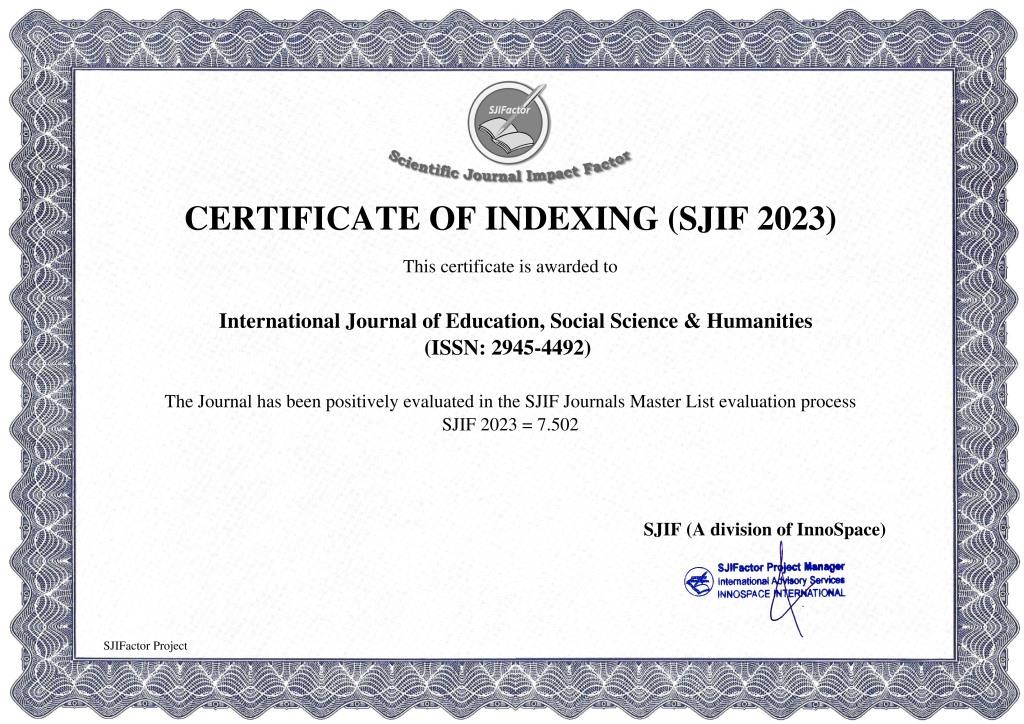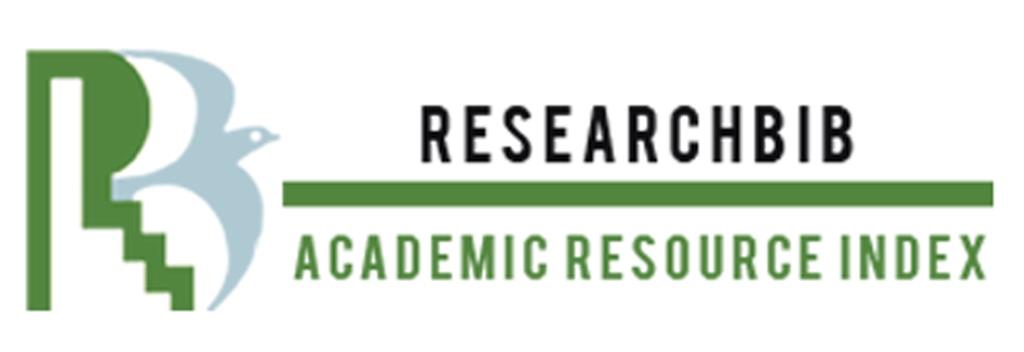MECHANISMS OF DEVELOPMENT OF CREATIVE THINKING SKILLS OF FUTURE ECONOMIC SPECIALISTS BASED ON INNOVATIVE EDUCATIONAL TECHNOLOGIES
Keywords:
educational technologies, interactive, pest, swot, pedagogue, economy, innovation, method, education, mechanism.Abstract
Today, at the stage of globalization and technological armament in the world, the demand for high-quality education, as a result of which, highly educated and intellectual potential economic personnel is increasing. This article discusses the role and importance of effective educational technologies in the training of economists, and provides examples of educational components in Japan, France, Mexico, and the United States. Also, the article presents the classification signs of various innovative methods used in the training of economists in higher educational institutions of Uzbekistan.
References
“State educational standard of higher education” of the Minister of Higher and Secondary Special Education of the Republic of Uzbekistan. the main provisions of the order “On approval of the state standard of the Republic of Uzbekistan” No. 35-2021.
Bordovskaya N.V., Zhebrovskaya O.O., Brodskaya I.M. Modern educational technologies. – 2013.
Ozhereleva T. A. Information modeling in educational technologies // International Journal of Experimental Education. – 2016. – No. 3-2. – pp. 214-218.
Ilchenko O. Standardization of new educational technologies // Higher education in Russia. – 2006. – No. 4. – pp. 42-46.
Abramov S. A. USE OF MODERN EDUCATIONAL TECHNOLOGIES IN THE PROCESS OF ORGANIZING ADDITIONAL PROFESSIONAL PEDAGOGICAL EDUCATION //Organizing Committee. – 2023. – P. 5.
Novikova A. A. Study of the influence of modern educational technologies on the formation of cognitive competence of students // Science for Education Today. – 2023. – T. 13. – No. 2. – pp. 57-75.
Kholilla Sarievich Kholmuratov and others. Innovative technologies in the educational process. “Science and Education” Scientific Journal / ISSN 2181-0842. January 2022 / Volume 3 Issue 1.
SAVCHUK G. et al. USE OF INTERACTIVE EDUCATIONAL TECHNOLOGIES ON THE TOPIC “TRANSFORMERS” OF THE DISCIPLINE “ELECTRICAL ENGINEERING” //International journal of advanced research in education, technology and management. – 2023. – T. 2. – No. 3.
S.I. Mirhayitova - Instruction manual on the pedagogical technology module. Tashkent-2020. 200 pages.
K. Ertel, L. Solomon. Strategic session. M.: Alpina Publisher, 2015. 248 pages.
E. V. Viktorova, D. A. Gorulev, D. A. Petrenko. Digital economy: challenges and opportunities for achieving sustainable development goals//Innovation. 2019. No. 9. P. 85-88.
J. Haymans, G. Timms. Who Rules the World? Harvard Business Review – Russia. 2015, Jan.-Feb. P. 41-49.
S. Ismail. Exponential Organizations: Why new organizations are ten times better, faster and cheaper than yours (and what to do about it). M.: Alpina Pabl., 2017. 393 p.
L. Brabandere, A. Iny. Thinking in the New Boxes. M: Ecsmo, 2019. 416 pages.
Prepared by the author based on information from the official website – www.marketscreener.com
Tursunkulovich S. R., Bakhtiyorovich O. B. Some using questions instruments of monetary policy //Galaxy International Interdisciplinary Research Journal. – 2022. – Т. 10. – №. 3. – С. 211-216.














